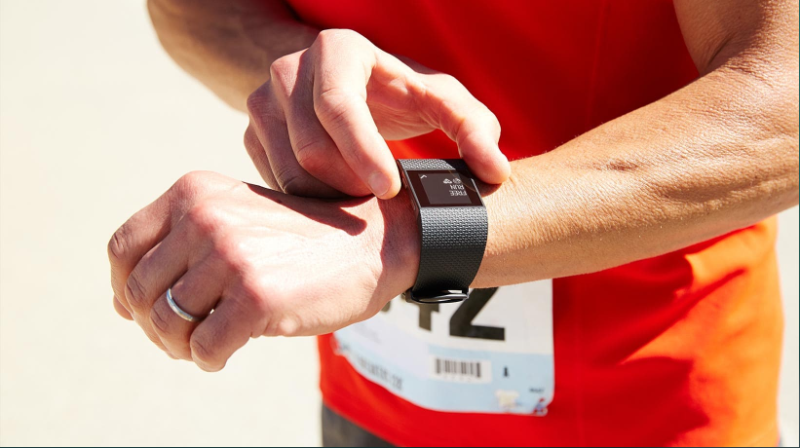According to the suit, one of the plaintiffs, Kate McLellan, of Murietta, California, compared her real-time heart rate readings from a Charge HR with those on a stationary exercise machine and noticed a discrepancy. She called Fitbit and was told to reboot the device. That didn't work, so she asked for a refund in an online chat with a company rep, but that was denied.
Fitbit issued a statement to various media, standing by the accuracy of the monitors. "PurePulse provides better overall heart rate tracking than cardio machines at the gym, as it tracks your heart rate continuously – even while you’re not at the gym or working out," the statement said. "But it’s also important to note that Fitbit trackers are designed to provide meaningful data to our users to help them reach their health and fitness goals, and are not intended to be scientific or medical devices.'
The lawsuit was filed the same day as Fitbit introduced, at the Consumer Electronics Show in Las Vegas, the Fitbit Blaze, which some reviewers have called an answer to the Apple Watch. Not everyone was impressed, however, and the company's stock hit the skids. (Fitbit, along with Apple, was also hit with a patent infringement lawsuit on the same day.)
Arbitration Test Case
There's an interesting wrinkle to this lawsuit. You may have read, a couple of months back, The New York Times series on the widespread use of arbitration agreements. It's long and involved, so we'll boil it down for you: You can't barely purchase a stick of gum anymore without agreeing to forego your right to sue in a court of law. That's an exaggeration, but only slightly.
The Times reported that "clauses buried in tens of millions of contracts have deprived Americans of one of their most fundamental rights: their day in court." Meaning that any time you sign up for a service or product, like cable TV, a credit card or health insurance, part of the terms of service is a prohibition against joining other consumers in a class-action lawsuit, as well as suing on your own. Instead, you must agree to resolve any dispute by going before a private arbitrator, usually the employee of a company hired by the defendant.
Well, as Alison Frankel explains for Reuters, Fitbit, like many companies, also employs an arbitration clause; it's included in the terms of service you sign when you register at the company's website. And you need to do that for the device to work.
However, the three plaintiffs named in the suit all bought their Fitbits at other retailers. Says the lawsuit, in identical language referring to all three plaintiffs:
"At no point before or during the purchase of her Charge HR was [the plaintiff] provided with or required to agree to an arbitration clause or class action ban, nor was she put on notice that she would be required to agree to an arbitration clause or class action ban for her Charge HR to function as intended."
That, says the lawsuit, brought by San Francisco's Lieff, Cabraser Heimann & Bernstein and Robert H. Klonoff, constitutes an "unconscionable post-purchase agreement, which class members were required to accept in order to render operational" the Fitbits they purchased.
Fitbit doesn't agree. Wrote Alison Frankel:
In a response to my email about whether the class waiver applies to users who bought their devices elsewhere, a Fitbit representative said, “All end users agree to the terms of service when they set up a Fitbit account regardless of where they purchased the device.” She [the representative] also said Fitbit “stands behind our heart rate technology and strongly disagrees with the statements made in the complaint and plans to vigorously defend the lawsuit.”
